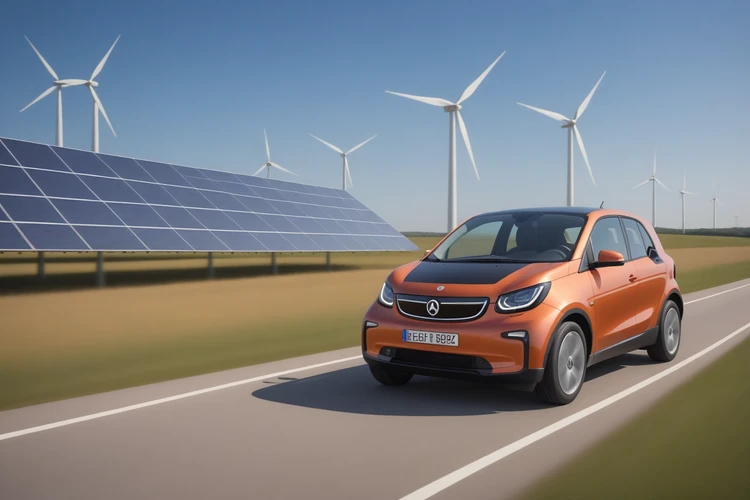🚦 Urban infrastructure and electric vehicles: challenges and solutions 🚗🔋
🚧 Problems of modern infrastructure
With the rapidly growing number of electric vehicles , city infrastructure faces several key challenges. From insufficient charging stations to difficulties integrating into existing road and energy networks, these challenges require immediate solutions.
Lack of charging stations
With the increasing number of electric vehicles in the city, the issue of availability of charging places is becoming an urgent issue. The uneven distribution of charging points creates “dead zones” where electric vehicle owners have difficulty finding a place to recharge.
Integration problems
For many cities, the challenge is to integrate charging stations into existing infrastructure without significantly interfering with the landscape and architecture.
Grid load
The rise of electric vehicles puts more strain on city power grids, which can lead to overload, especially during peak hours.
🌟 Innovative solutions
Various steps are being taken to address these issues. From developing new charging technologies to smart grids and government support, innovation is leading us towards a more sustainable and efficient future.
Smart charging stations
Smart charging station systems make it possible to effectively distribute the load on the power grid, as well as provide the user with information about the availability of charging points in real time.
Modular construction
Modular charging stations can be quickly installed anywhere, allowing the infrastructure to easily scale to meet growing needs.
Government incentives
Government programs to support the development of charging infrastructure play an important role in accelerating the integration of electric vehicles into urban environments.
Quote:
Innovations in charging infrastructure are opening up new horizons for urban development and setting the stage for a green transport future .” — Urban infrastructure specialist
📈 Statistics and trends
Understanding the current state of affairs and expected trends helps in planning the development of infrastructure for electric vehicles. Check out some key statistics:
The rise of electric vehicles
- The US, Europe and Germany have seen a steady increase in the number of electric vehicles, which requires an increase in the number of charging stations.
- The number of electric vehicles in the world is projected to reach 145 million by 2030.
Development of charging stations
- In response to increasing demand, the number of charging stations is also growing, but the pace of their construction still lags behind market needs.
- Investments in charging station infrastructure are increasing year by year, stimulating their proliferation.
| Year | Number of electric vehicles (millions) | Number of charging stations (thousands) |
|---|---|---|
| 2021 | 10 | 1.2 |
| 2025 | 40 | 4.5 |
| 2030 | 145 | 15 |
Energy requirements
- With the growing number of electric vehicles, electricity consumption increases, which requires strengthening and modernizing city power grids.
🌍 World initiatives
In different countries around the world, the issues of integrating electric vehicles into urban infrastructure are addressed differently. Here are some examples of successful initiatives:
European experience
- In Europe, especially in Germany and the Netherlands, government programs for the construction of charging stations are actively developing, which makes electric vehicles more accessible and convenient for users.
American projects
- In the US, a number of large cities are launching programs to encourage the private sector to create charging infrastructure, including using renewable energy sources.
Global trends
- There is a trend around the world towards the creation of smart cities, where electric vehicles and the infrastructure for charging them are integrated into a single information network.
🚀 Future charging technologies
Innovation does not stand still, and in the near future we can expect breakthroughs in electric vehicle charging technologies:
Wireless charger
- Research into wireless power transfer promises a new era for charging stations, where drivers can charge their cars without leaving the car.
Ultra- fast charging
- Developments in ultra-fast charging stations can reduce charging times from hours to minutes, making the charging process comparable in time to filling traditional gasoline or diesel cars .<a href="“>
Integration with renewable energy sources
- Integrating charging stations with solar panels and wind turbines will reduce dependence on traditional energy sources and make the charging process more environmentally friendly.
🌟 Conclusions
The transition to electric vehicles is not only a fashion trend, but also a necessity due to concern for our future and the environment. The development of electric vehicle infrastructure plays a key role in this transformation. Considering the growth rate of the number of electric vehicles and statistical forecasts, it is safe to say that significant changes in urban infrastructure await us in the near future. Investments in new technologies and strengthening the network of charging stations will make the use of electric vehicles even more comfortable and accessible for all segments of the population.
It is important to remember that every step towards sustainable development not only improves the environmental situation, but also opens up new opportunities for business and innovation. In the future, we can expect the emergence of entire ecosystems associated with the operation and maintenance of electric vehicles, which, in turn, will lead to the creation of new jobs and stimulation of the economy.
Electric vehicles and their charging infrastructure are not just the technology of the future, they are an investment in the health of the planet and the well-being of future generations.



